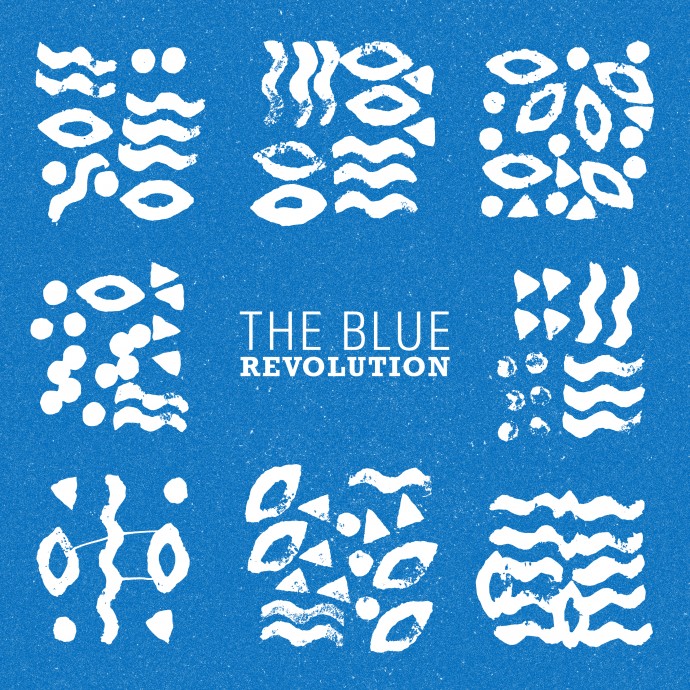Randolph Hencken, 37, is the Executive Director of The Seasteading Institute, a San Francisco Bay Area-based non-profit think tank that seeks to create so-called ‘experimental zones’ on the ocean. These autonomous, floating city-states, or ‘seasteads’, would be places where new political, environmental, scientific, legal, and social policies could be incubated, free from the restrictions and interference of existing governments. He shares his personal inspiration, as well as the organization’s goals and vision for the the future of what he calls the ‘Blue Revolution’.
I come from a family that argued about politics at the dinner table. It was enriching and enjoyable, and inspired me to become politically active. However, as I grew older, I became increasingly frustrated. Drug policy reform is my personal passion. I involved myself with initiatives that sought to overturn prohibition, a practice which has, after several decades, done nothing but increase incarceration, ruin lives, and create violence. I also eagerly signed petitions and sent letters to my senators and legislators in an attempt to avoid war fought under false pretenses. In the end, it didn’t matter. I could yell as loud as I wanted, but I felt like little more than a cog in the machine.
Becoming a seasteader gave me an outlet. Instead of my blood boiling from the frustration of trying to change things from the inside, I can now focus on how they can be improved from the outside. A small group of individuals can influence Washington, and even the world, by simply launching a seastead. It is this hope that has drawn thousands of people from all over the globe to the movement.
There are currently only one hundred and ninety countries for seven billion people. Because of rigid immigration policies, there really isn’t much opportunity for people to choose in which nation or under what set of laws they live. Simply stated, these governments have a monopoly over their citizens. What if we created new nations that had the opportunity to either rise or fall because they succeeded or failed in meeting the desires of their citizens? The monopoly would be broken, and governments could no longer impose their will upon us. Instead, they would have to innovate and change to meet our needs.
The ocean is the best place for us to conduct this experiment. People would have the freedom to literally sail their homes from one floating country to another, and the governments of these new countries would have to compete with one another in order to attract new citizens. In turn, the governments of land-based nations would be forced to follow suit as more and more of their own citizens immigrated to these seasteads.
In addition to innovating new forms of government, seasteads with new regulatory regimes will enable us to advance the new technologies, sciences, and medicines that are now stymied by lumbering, bureaucratic organizations like the United States Food and Drug Administration. The current goal of such agencies is little more than their own self-preservation. Supporting bold, new experimentation would seriously risk their reputation. This encourages pharmaceutical companies to focus on easy drugs. The future of medicine is one based upon individualized treatments that reflect patients’ unique genomes, not upon a bell curve. We need new places where this experimentation can occur. It’s not going to happen in the EU or the United States anytime soon, but maybe seasteads can provide an new model that can encourage them to adapt their policies more quickly.
Seasteading would also lead to social innovation. We would be creating entirely new nations comprised entirely of immigrants. People from different countries, cultures, ethnicities, and religions would be coming together in a way that is now all but impossible due to restrictive immigration policies. These collections of bright, unique citizens would be in a position to pioneer an entirely new culture and way of life. The drive for collective collaboration, compassion, and cooperation would accelerate, again serving as an example that would benefit all humanity.
This untapped ‘blue frontier’ is right outside our door, and the ocean is the solution to not only the problems of restrictive land-based government policies, but also to the problems of land-based living in general. Human migration to the seas is an inevitability. The population is growing exponentially, water levels are rising due to global warming, and we will have run out of the phosphorus we need to produce fertilizer in just fifty years.
We can design floating cities that run on clean and renewable tidal, solar, wind, or thermal energy. We can also employ modern aquaculture technologies to reduce food scarcity. Not only do we have the means to raise fish, mollusks, and kelp in sustainable ways, but we can do so while removing pollutants from the ocean. By making it cleaner and less acidic, we can revitalize the seas by replenishing them and rolling back the extensive damage of unchecked hunting and gathering.
It is with these ideas in mind that The Seasteading Institute came up with the Floating City Project. Our goal is to raise the funds and recruit the people necessary to launch the very first seastead. We are confident that others will follow, but it is our mission to lead by example. Currently, the biggest obstacle is autonomy. While International Waters technically start twelve miles from a nation’s shore, ocean resource rights extend for two hundred miles. A seastead this far from land would be free from the jurisdiction of a foreign nation, but constructing and maintaining it would be incredibly challenging.
The engineering required to guarantee safe and stable living conditions on the high seas would mean building a huge, semi-submersible platform much like an offshore oil rig. Not surprisingly, this would prove extremely expensive. Additionally, people, goods, and services would have to travel two hundred miles in each direction. Instead, we are negotiating with influential people from about twenty small, coastal countries that we think might be amenable to a host nation relationship. The ideal arrangement would be to moor the seastead within territorial waters and still be offered significant autonomy. In return, this country would benefit from the commerce, tourism, and environmental benefits our city would bring, in addition to gaining the recognition of being the first nation in the world to have helped pioneer this bold venture.
I believe that this first seastead will be built and in the water by the end of the decade. These potential host nations have generally been very welcoming of the idea, and greeted us with open arms. It’s still going to cost tens or even hundreds of millions of dollars to construct, but our pool of donors and enthusiastic supporters is growing every day.
Our vision is that, decades from now, there will be hundreds or even thousands of floating cities, each competing to attract new citizens by improving and experimenting with new policies. This could change the world. Sure, it would be easy to dismiss or detract from such a bold, imaginative idea, but this doesn’t concern us. People once thought that it would be impossible to fly, to travel in excess of one hundred miles an hour, or build a computer smaller than an entire room. Need I explain the ways that each of these innovations has fundamentally altered lives and broadened imaginations?
I’m pragmatically optimistic. We could fail, but the payoff would be so high that it’s more than worth our investment. When the United States was founded, it was a great leap forward. Democracy supplanted monarchy as the prevailing form of government. This new development has directly influenced the lives of billions of people, bringing with it greater health, wealth, and happiness. Like all forms of government, however, democracy has its flaws. Unfortunately, we haven’t had another great leap forward in a very long time. As pioneers of the Blue Revolution, we at The Seasteading Institute hope to lead the way.







